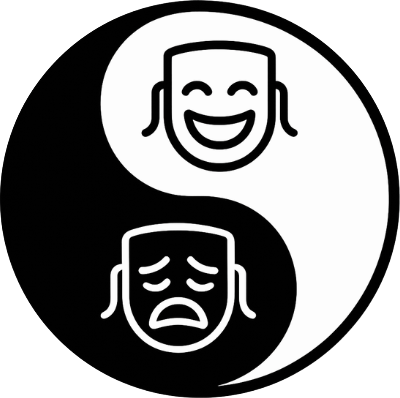Introducing the Fail-e-bration
We'll watch Cate Blanchett in anything. Legit. For us, Blanchett personifies bold, uninhibited performance. Which, as we actors know, is very easy to aspire to, challenging to consistently practice. Blanchett is a master.
Yet, becoming a master requires constant trial-and-error, and Blanchett has openly recounted tales of her many excruciating flops. She goes hard or goes home, amigos. For her, "If you know you are going to fail, then fail gloriously".
As Dojo actors, we're likely to aspire to the same magnitude of impact as Blanchett. The catch, however, is that this naturally entails painful bouts with failure from time to time. Fortunately, we have a solution. A solution that facilitates mastery while keeping us sane.
Welcome to the Fail-e-bration.
Backed by science; built for the stage and screen.
👊 Actors:
Get evidence-informed insights and strategies to support your performance and well-being. Join the Dojo e-newsletter tribe and make thriving your reality.
🧭 Drama schools & Production companies:
Bring pioneering, research-backed coaching into your classroom or rehearsal room. Let’s talk about supporting your actors to perform at their peak – and stay well in the process.
Fear and loathing (in our egos)
Before we dive into the party that is the Fail-e-bration, we'll briefly address why failure is such a formidable opponent in the first place.
For prehistoric humans, failure had very real consequences. Most commonly (and significantly) death. Or being cast out of the tribe, which was ultimately the same thing. It's hardly any wonder we've developed an aversion to falling short.
For humans today, however, the stakes aren't likely to be quite as high. Especially within the actor's arena. Yet, we still experience the same psycho-somatic response as our primitive ancestors. As is often pointed out, the external world has evolved beyond recognition, but our internal worlds have remained much the same.
Akin to outdated software, this conditioning now hinders more than it helps. On the actor's path, it keeps us playing safe, small, and scared. States typically not conducive to reaching the dizzying depths of creativity and peak performance.
For those of us with Ambitious-Ass Goals, the "Spectrum of Reasons for Failure" can be a helpful touchstone. The "praise-worthy" half are "intelligent failures" – failures encountered when working at the frontier, pushing boundaries, and exploring uncharted territory. The very spaces we want to be frequenting in rehearsals, classes, or extra takes.
So how do we short-circuit these hard-wired responses to make this possible?
The Fail-e-bration
The next time we fail gloriously (as per Blanchett's advice), we can choose to Fail-e-brate. The Dojo Fail-e-bration is a lil' three-step dance that celebrates our courage and commitment to innovation. It's also far more enjoyable than steeping in self-disgust for the evening.
- Allow. We want to give ourselves permission to feel. Failure can trigger uncomfortable emotions such as anger, disappointment, fear, and shame. We don't tend to sit with these sorts of feelings, but it can actually be tremendously empowering to do so. We find that we can dispel much of our internal unrest by simply acknowledging and labelling it. In a world that sprints from anything unpleasant, our ability to sit in the eye of the storm is a superpower.
- Explore. Once we've settled – at least somewhat – emotionally, we want to dig around the debris. Is there anything we can learn from the failure? Like a scientist testing various hypotheses, discovering what doesn't work inches us closer to discovering what will. Make a note of any insights that come to mind. Being willing to risk failure separates us from the pack. This is where exponential growth occurs.
- Boogie. Here, we set aside at least an hour to Fail-e-brate for real. Some Dojo homies have a go-to Fail-e-bration that they activate each and every time. Others like to mix it up. The content is irrelevant – what matters is that we do something that epitomises joy, indulgence, and playfulness for us. Maybe this is ordering in our "Last Supper" dinner. Maybe this is spending the evening playing Cluedo with our favourite human. Or maybe this is marathoning through an anime, snuggled up to our doggo. Genuinely, whatever sails our ship.
When we celebrate a behaviour or action, we incentivise repeating it. And if our intention to become a game-changing, earth-shaking actor is sincere, exposing ourselves to failure will be an inherent part of our journey. We may as well enjoy it.

Love what you’re reading? Help us keep it flowing. Donations support the research, writing, and free sharing of evidence-informed tools for actor performance and well-being. Every dollar fuels our mission to make thriving a reality for actors everywhere 🔥
Cite us!
IG: @theactorsdojo
APA 7: Norrish, T. (2022, May 17). Introducing the fail-e-bration. The Actor’s Dojo. https://www.dojoactors.com/fail-e-bration/
